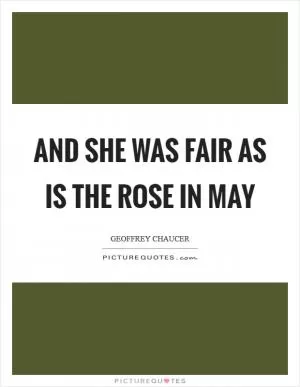Allas! Allas! That evere love was synne!

Allas! Allas! That evere love was synne!
Geoffrey Chaucer, often referred to as the father of English literature, was a poet and author who lived in the 14th century. His most famous work, "The Canterbury Tales," is a collection of stories told by a group of pilgrims on their way to the shrine of Thomas Becket in Canterbury. Chaucer's writing is known for its wit, humor, and keen observations of human nature.One of the most famous lines from Chaucer's work is "Allas! Allas! That evere love was synne!" This line comes from the "Merchant's Tale," one of the stories told by the pilgrims in "The Canterbury Tales." In this tale, a young man named Januarie marries a beautiful young woman named May. However, Januarie is old and blind, and he is unaware that May is having an affair with a young squire named Damyan.
The line "Allas! Allas! That evere love was synne!" is spoken by Januarie when he discovers his wife's betrayal. In this moment, Januarie laments the fact that love, which is supposed to be a pure and noble emotion, has led him to such pain and suffering. He sees love as a sin because it has caused him to be deceived and humiliated by his wife.
Chaucer's exploration of love in "The Canterbury Tales" is complex and multifaceted. While love is often portrayed as a positive and life-affirming force, Chaucer also shows how it can lead to jealousy, betrayal, and heartbreak. The line "Allas! Allas! That evere love was synne!" captures the darker side of love, where passion and desire can lead to moral and emotional turmoil.
Overall, Chaucer's work reflects a deep understanding of human relationships and the complexities of love. Through his characters and stories, he explores the joys and sorrows of love, as well as its potential for both redemption and destruction. The line "Allas! Allas! That evere love was synne!" is a powerful reminder of the ways in which love can both uplift and betray us.












 Friendship Quotes
Friendship Quotes Love Quotes
Love Quotes Life Quotes
Life Quotes Funny Quotes
Funny Quotes Motivational Quotes
Motivational Quotes Inspirational Quotes
Inspirational Quotes